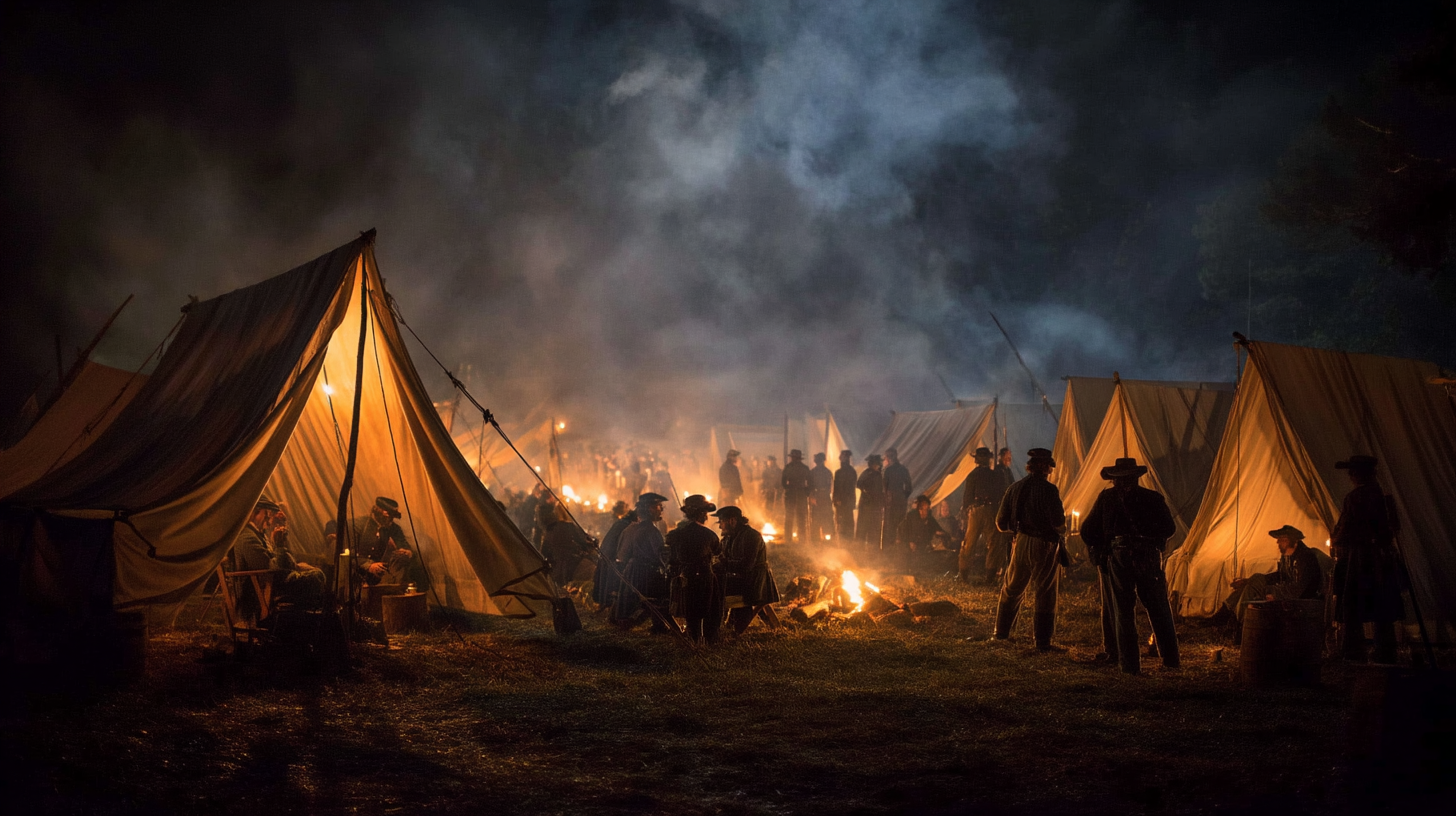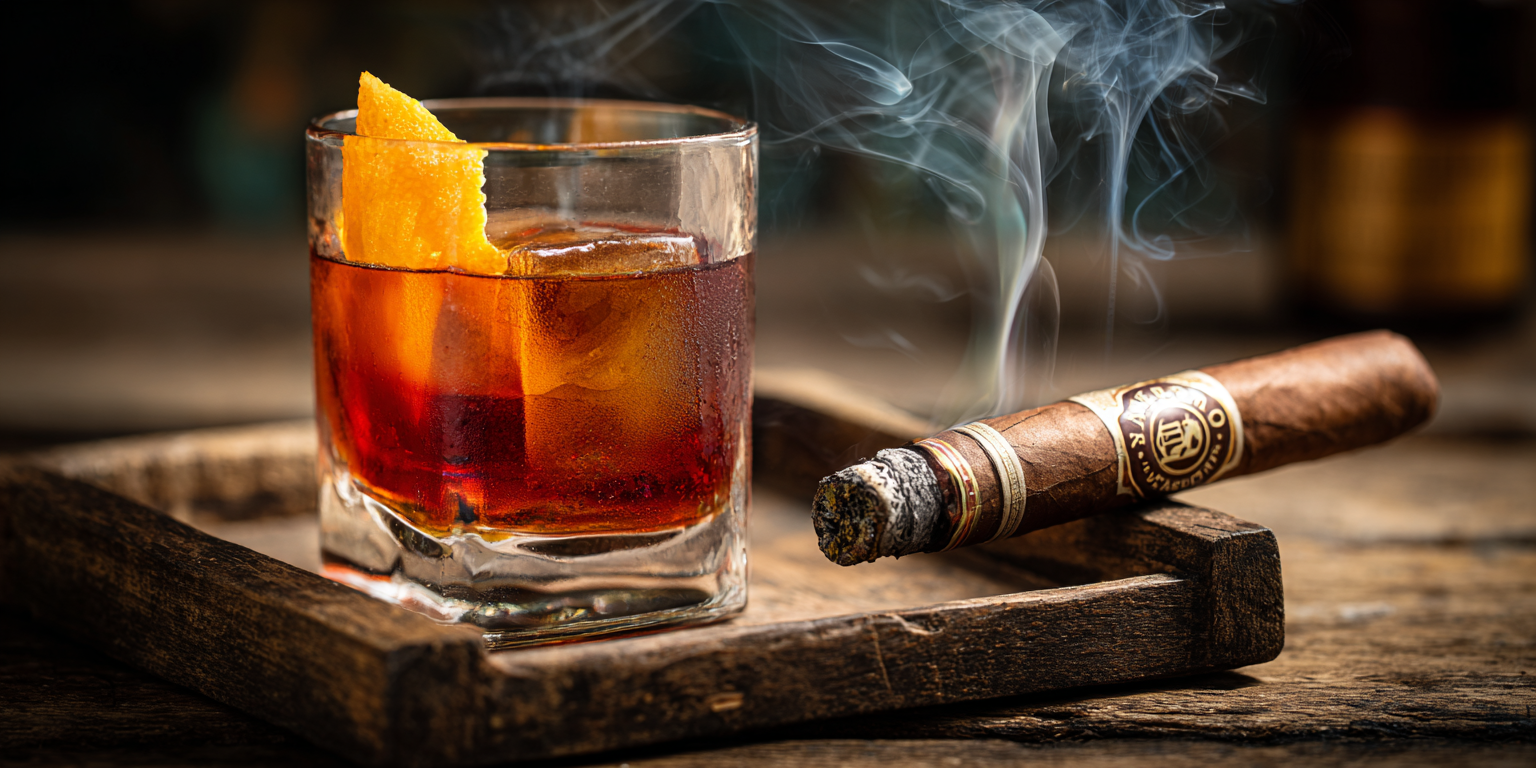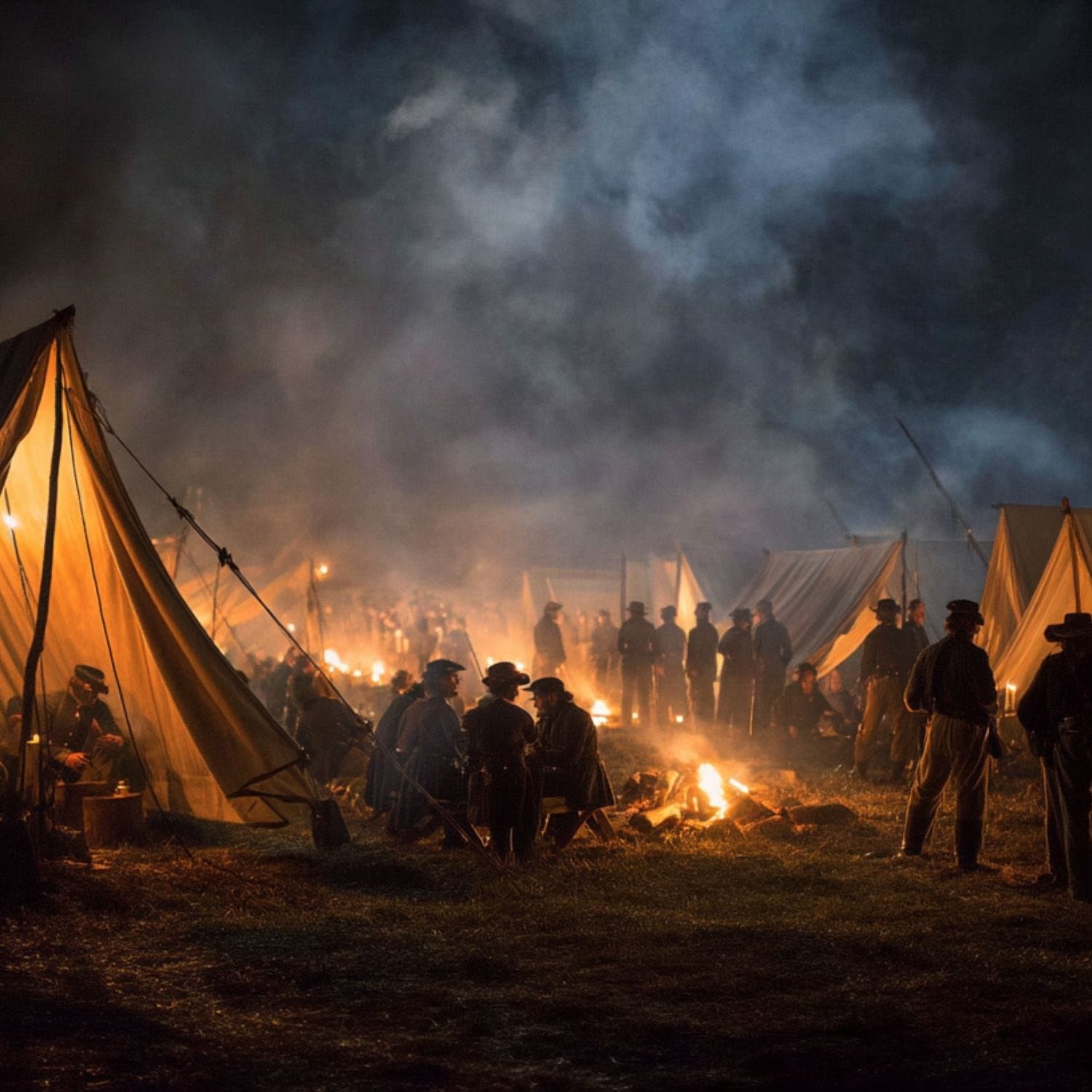Comfort and Currency: The Role of Cigars in Civil War Camps

The crackle of gunfire, the rumble of cannons, the endless march – these are the images that often come to mind when we think of the American Civil War. But beyond the grand strategies and battlefield heroics, the war was also a deeply personal experience for the soldiers who fought it. Amidst the hardships and horrors, they sought solace in small comforts, and one of the most prevalent of these was the humble cigar. But cigars were more than just a source of fleeting pleasure; they became a form of currency, a symbol of camaraderie, and even, in one famous instance, a pivotal element in the course of history. In this blog post, we'll delve into the fascinating role cigars played in Civil War camps, exploring their significance as both a comfort and a commodity. This exploration builds upon the themes discussed in our latest podcast episode, Civil War Smokes: Cigars in Blue and Grey Camps, where we examine these concepts in greater depth. We encourage you to listen to the episode for a more immersive and detailed account.
Cigars as Comfort in Civil War Camps
Life in a Civil War camp was relentlessly challenging. Soldiers faced disease, inadequate food, harsh weather conditions, and the constant threat of battle. Under such circumstances, anything that offered a moment of respite was highly valued. Cigars provided just that. The act of smoking became a ritual, a way to temporarily escape the grim reality of war. The aroma of burning tobacco, the slow, deliberate puffs, the shared silence among comrades – these were all part of a comforting routine that helped soldiers cope with the immense stress they were under.
For many, cigars evoked memories of home. The scent might have reminded them of their father or grandfather, or of peaceful evenings spent on the porch. These associations provided a connection to a life beyond the war, a life they desperately hoped to return to. The simple act of lighting a cigar could be a small act of defiance against the overwhelming sense of despair and uncertainty that permeated camp life.
Furthermore, cigars facilitated camaraderie. Soldiers would often share their smokes, passing them around campfires or after a long day of marching. This act of sharing created a sense of unity and brotherhood, forging bonds that helped them endure the hardships together. In a world where trust was essential for survival, the sharing of a cigar became a symbol of mutual respect and support.
The psychological impact of these small comforts should not be underestimated. In the face of constant trauma, soldiers needed ways to regulate their emotions and maintain their sanity. Cigars offered a readily available and relatively inexpensive means of doing so. They provided a momentary distraction from the horrors of war, allowing soldiers to relax, reflect, and connect with one another.
Cigars as Currency: A Prized Commodity
Beyond their comforting qualities, cigars also became a form of currency in Civil War camps. In the absence of readily available cash, soldiers often used cigars as a means of exchange. They could be traded for food, supplies, or even favors. The value of a cigar depended on its quality, availability, and the specific needs of the individual. A fine cigar, particularly one from a premium brand, could be worth a significant amount, especially in areas where they were scarce.
This informal economy thrived in both Union and Confederate camps, although the types of goods traded and the specific values assigned to them varied. Soldiers often bartered with each other, swapping cigars for items they needed more urgently, such as extra rations, clean socks, or writing paper. They also traded with sutlers, civilian merchants who followed the armies and sold goods to the soldiers. Sutlers often accepted cigars as payment, knowing they could later resell them at a profit.
The use of cigars as currency highlights the resourcefulness and adaptability of Civil War soldiers. They created their own informal economic systems to meet their needs in the absence of formal structures. This system relied on trust and mutual understanding, as the value of cigars could fluctuate depending on supply and demand. However, it provided a vital means of exchange and helped soldiers obtain the necessities they needed to survive.
The diary entries and letters of Civil War soldiers are filled with references to these transactions. They speak of trading cigars for coffee, sugar, or even a place to sleep under a roof during a storm. These anecdotes provide a glimpse into the daily lives of soldiers and the creative ways they found to navigate the challenges of war.
The Scarcity Factor: Union vs. Confederate
The availability of cigars varied significantly between Union and Confederate camps. The Union, with its superior industrial capacity and control of the seas, generally had better access to goods and supplies, including cigars. While scarcity was still a factor, Union soldiers were more likely to receive cigars in care packages from home or to purchase them from sutlers.
In contrast, Confederate soldiers faced greater challenges in obtaining cigars. The Union blockade severely restricted the flow of goods into the South, leading to shortages of almost everything, including tobacco products. While tobacco itself was grown in the South, the production of high-quality cigars required expertise and materials that were increasingly difficult to come by. As a result, Confederate soldiers often had to make do with inferior tobacco or even resort to smoking dried leaves and herbs.
The scarcity of cigars in Confederate camps made them even more valuable as a form of currency. A single good cigar could be worth a fortune, and soldiers would often go to great lengths to obtain one. This disparity in access to cigars reflected the broader economic imbalances between the North and the South during the Civil War.
Despite the challenges, Confederate soldiers were resourceful in finding ways to satisfy their cravings for tobacco. They experimented with different types of leaves, created their own "camp rolls" using scraps of tobacco and newspaper, and even traded with Union soldiers across the lines. These interactions, while technically illegal, were not uncommon and served as a reminder of the shared humanity that existed even amidst the conflict.
The Accidental Cigar: A Turning Point in History
Perhaps the most remarkable story involving cigars in the Civil War is the tale of the lost Special Order 191. In September 1862, as General Robert E. Lee led his Confederate army into Maryland, he issued Special Order 191, outlining his plans for the invasion. A copy of this order was accidentally dropped by a Confederate courier and subsequently discovered by Union soldiers wrapped around three cigars in a field near Frederick, Maryland.
The discovery of this order was a major turning point in the war. It revealed Lee's intentions, including the division of his army and the planned attack on Harpers Ferry. This intelligence gave Union General George McClellan a significant advantage, allowing him to anticipate Lee's movements and prepare for battle.
The ensuing Battle of Antietam, fought on September 17, 1862, was the bloodiest single day in American history. While the battle itself was tactically indecisive, it forced Lee to abandon his invasion of Maryland and retreat back into Virginia. More importantly, it gave President Abraham Lincoln the opportunity he needed to issue the Emancipation Proclamation, which declared all slaves in Confederate-held territory to be free. This transformed the war from a struggle to preserve the Union into a fight to end slavery, fundamentally altering the course of American history.
The story of the lost order highlights the unpredictable nature of war and the profound impact that seemingly insignificant events can have. The fact that a crucial military document was found wrapped around a bundle of cigars is a testament to the importance of these small comforts in the lives of Civil War soldiers. It also serves as a reminder that history is often shaped by chance and circumstance.
Episode Highlight: Pickets and Graveside Smokes
In our latest episode, Civil War Smokes: Cigars in Blue and Grey Camps, we delve even deeper into these aspects of cigars within the context of Civil War camps. We explore instances of pickets swapping coffee for tobacco under the cover of moonlight, blurring the lines of conflict with small shared gestures. We discuss poignant scenes of soldiers lighting cigars beside the graves of their fallen comrades, marking moments of respect and remembrance amidst loss.
The episode features excerpts from letters and diaries of Civil War soldiers, providing a firsthand account of the role cigars played in their lives. We also discuss the economic impact of the cigar trade on both the Union and the Confederacy, examining the ways in which cigars were used as a form of currency and a source of revenue.
One of the most compelling stories we share is about a group of Confederate prisoners of war who managed to smuggle tobacco into their camp using a hollowed-out Bible. This illustrates the lengths to which soldiers would go to obtain cigars and the ingenuity they displayed in overcoming obstacles. These stories, and many more, paint a vivid picture of the role cigars played in shaping life, and even history, in the Civil War.
Conclusion: Listen to the Full Story
Cigars in Civil War camps were far more than just a smoke. They were a source of comfort, a form of currency, and a symbol of camaraderie in a world of hardship and uncertainty. From providing momentary respite from the horrors of war to inadvertently influencing the course of history, cigars played a significant role in the lives of Civil War soldiers. This blog post offers a glimpse into that complex and fascinating story. For a more detailed and immersive account, be sure to listen to our latest podcast episode, Civil War Smokes: Cigars in Blue and Grey Camps. There, we explore these themes in greater depth, drawing on firsthand accounts and historical research to bring the story of cigars in Civil War camps to life.
Thank you for reading Smoke Signals! We appreciate your support and hope you enjoyed this exploration of the role of cigars in Civil War camps. We encourage you to subscribe to our podcast for more fascinating stories from history.
Support Smoke Signals by subscribing for free to receive new posts and support our work.








